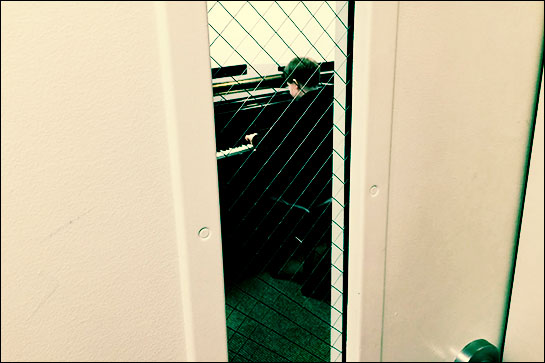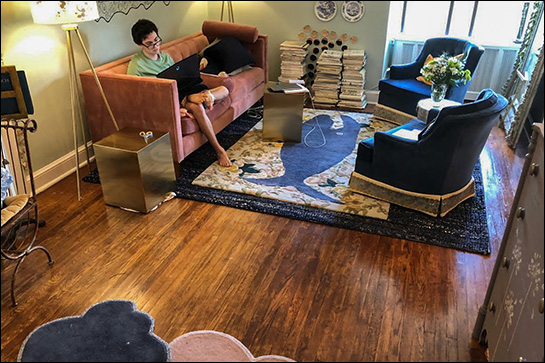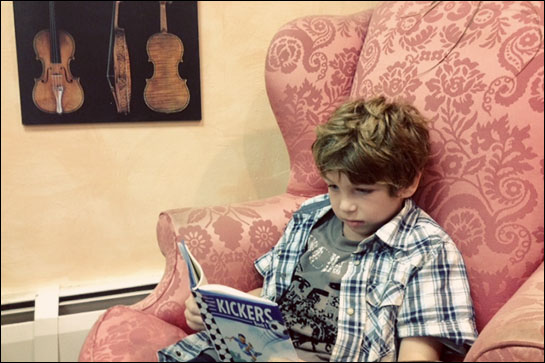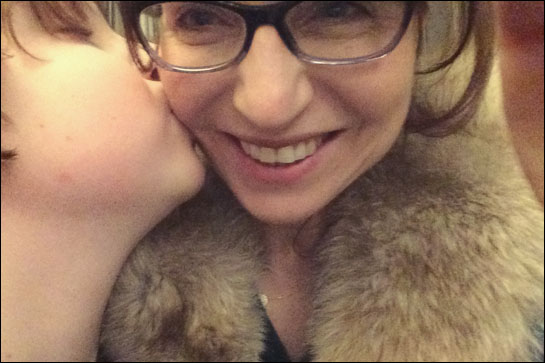
This picture is of my journal from third grade. I’ve been keeping a journal since before I could write. Sometimes I’ll open a volume randomly and find something notable and send it to my brother.
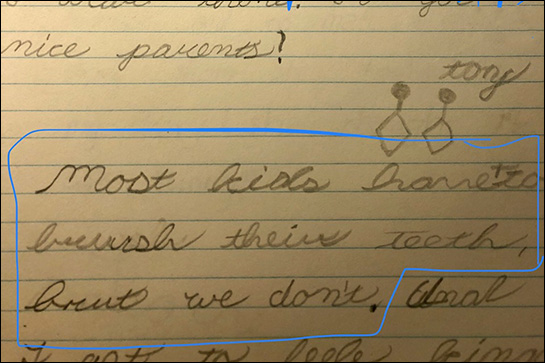
The circled text says, “Most kids have to brush their teeth, but we don’t.”
I didn’t realize everyone was brushing their teeth every day until my mid-20s. I thought brushing was like making a bed. We all KNOW we’re supposed make our bed but it’s not fun so people don’t always do it. I thought brushing was optional and that this was understood by everyone.
That’s a recurring problem for people with autism. We know that a lot of things that should happen are not all that important. It’s just that neurotypical people have a natural sense of what everyone agrees is important. Whereas people with autism assume that if the task is a pain, then we can ignore it.
Writing in a journal is something people admire. So no one ever thought to look at WHY I was writing so much. They just assumed that writing is good, and self-discipline is good, so writing in her journal is good. But actually, I’ve found that when someone is doing something more than almost everyone else, they have a gift but also a corresponding deficit. Because there is no free lunch in anything, including neurobiology.
The reason I wrote so much is that it helps me with anxiety. Also, I felt that nothing in my life really happened until I wrote it down. By the time I got to college, I would avoid seeing people or going to class so that I could catch up on documenting my life in my journal. By my mid-20s I was writing in my journal three or four hours a day.
When I took anxiety medicine, in my 40s, I stopped wanting to write in my journal. I just stopped. Because my brain was calm for the first time in my life. That’s when I started thinking about the huge number of things I was doing in my life to compensate for autism. Lots of people say, “Just do xxx.” But it’s really really hard for people with autism to “Just do” what other people can do. So we hide.
Also, people with autism have superpowers. And the more we understand what’s special about us, the more we can leverage that to circumvent things that we can’t make ourselves do. When you see someone with autism who is successful, you are seeing that person avoiding everything they don’t want to do. It’s a trick. I’ll show you how to do it.
The biggest problem with not understanding autism is not understanding who we are and why we do what we do. I’ll help you put everything together in a way that does not feel lonely or exhausting—for us or the people dealing with us.
Here’s what we’ll cover in the course:
Day One: Everything you’ve been told is wrong
Did you know that 90% of women with autism are not diagnosed? This is because the medical community has no idea what they’re doing. And the result is that most of the research about autism is understated because half the people who would have been a yes—for any type of research—are a no.
I’ll tell you what this means for people with autism and how you can leverage the research that is just coming out to make better decisions about treatment. Here’s just one thing you’ll find out: Most prodigies have autism. See? No one reports this stuff. You have to get it from me.
Day Two: How to stay employed and stay married
Adults with autism are happy if they love their spouse and their spouse loves them. And they are not stuck on philosophizing about what the word love means.
So the most important skill for someone with autism is to stay married. I will give you hard and fast rules to guide you in picking a spouse. For example, if you pick someone with autism one of you needs a trust fund. And women with autism are the most likely candidate to be engaged to a sociopath.
If you are already married, I’ll show you how to look like you function as a normal adult without really doing it. And I’ll tell you the three signs that the person with autism is destroying the marriage and needs to be contained.
And I’ll show you how you will stay employed if you use the same rules at work for staying married at home.
Day Three: Introduction to the world of paid friends
The reason you don’t need socializing in childhood is that you can buy friends. Neurotypicals cannot do this, because they want so much in a friendship. People with autism are more practical.
I have been buying friends my whole life. I’ll tell you the types of friends you can buy for home and which you buy for work. And I’ll show you how to tell which problems you can solve with a paid friend. And how to get a real friend if the circumstance demands it.
Day Four: Q & A with Me and You
Ask me anything and I’ll give you a longer answer than you need until my co-host tells me to shut up. We learn through example.
Sign up now to get instant access to 5 hours of video lessons, 6 months of on-going support and weekly meetings with like-minded people. In this course, I will tell you what I’ve learned from coaching 300 people with autism and reading hundreds of peer-reviewed articles. I will send you fun things to read. We will chat. People with autism will be in heaven. People who don’t have autism will be shocked, but in a good way.
Tell me you don’t have autism and I’ll decide for myself and then tell you why I’m right. And then I’ll tell you that I know you have autism because you want to be right as much as I want to be right. And wanting to be right is a neurological tic that makes people want to strangle us.
Figuratively.




